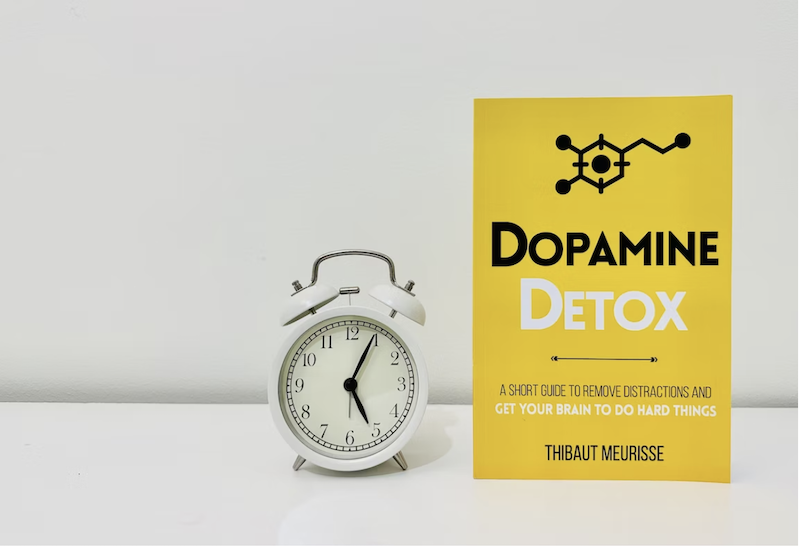Dopamine and Addiction – Dispelling the Myths
Branded Content by Cosmic Press
Dopamine is a fascinating neurotransmitter responsible for allowing people to feel pleasure, satisfaction, and motivation. However, this neurotransmitter often takes center stage in discussions about addiction.
While there are many things people say and believe about this neurotransmitter, not all are correct. Some beliefs about dopamine and addiction hold true, while others are mere misconceptions.
In this article, we’ll explore some common myths and misconceptions surrounding dopamine and its role in addiction.
Myth 1: More Dopamine Equals More Happiness
Most people think that dopamine brings about happiness, and assume that more dopamine will give them more happiness. But that’s not true.
Dopamine is just one piece of the puzzle when it comes to happiness. Other neurotransmitters like serotonin, endorphins, and oxytocin are also involved in our overall sense of well-being. Additionally, happiness is influenced by factors like social connections, personal values, and mental health.
Lastly, consistently high levels of dopamine can lead to tolerance or downregulation of receptors, which may actually decrease sensations of pleasure over time. The good news is that there are several ways of managing dopamine levels to ensure improved cognitive function, stimulate creativity, and increase attention.
Myth 2: Dopamine Causes Addiction
Another common myth is that dopamine causes addiction. While an increase in dopamine does contribute to reinforcing addictive behaviors, addiction is a far more complex biopsychosocial phenomenon involving genetics, environment, and experiences.
Brain structures such as the nucleus accumbens and prefrontal cortex also play critical roles in addiction development. Furthermore, some studies suggest that alterations in other neurotransmitter systems like serotonin or glutamate might contribute to specific aspects of the addictive process.
Put simply, dopamine only plays a role in reinforcing behaviors and forming habits because it is released when we experience rewarding stimuli.
Myth 3: Addicts Are Just Seeking Pleasure
This myth suggests that people become addicted because they’re simply seeking constant pleasure from substances or activities. While there is some truth in it, the reality is that addicts often continue using drugs despite experiencing negative consequences on their health and relationships because the brain’s dopamine system has been altered.
As a result, the brain experiences a reduced ability to feel pleasure from natural rewards, driving individuals to seek higher levels of stimulation.
Myth 4: Certain Individuals Have “Addictive Personalities”
Most people believe that certain people have addictive personalities, but that’s not always the case. While some personality traits may play a role in the initiation of addictive behaviors, the development and maintenance of addiction go beyond personality characteristics alone.
Brain chemistry, family history, trauma, and social environment are all critical factors in understanding who might be more susceptible to addiction. So, it’s essential not to stigmatize or oversimplify the issue by labeling someone as having an “addictive personality.”
Myth 5: Dopamine Acts Only in the Context of Addiction
Many people believe that dopamine only works with addiction, but that’s far from the truth. Dopamine is involved in many cognitive processes unrelated to addiction; for example, it plays a key role in memory formation and learning.
Additionally, dopamine even influences aspects of our immune system and gastrointestinal function. Remembering that dopamine has various roles within our brain and body should serve as a reminder not to focus solely on its association with addiction but to appreciate its contribution to our overall health and well-being.
Conclusion
The world of dopamine and addiction is an intricate one, filled with misconceptions that are often perpetuated through popular culture and media. It’s crucial to separate fact from fiction and gain a deeper understanding of the complex relationship between dopamine and addiction.
As we’ve seen, dopamine plays a multifaceted role in our brain’s functioning and overall well-being. And because you now know what is true and what is false, you can take steps towards reducing the stigma surrounding addiction and fostering a more compassionate society that supports those affected by addiction.
Branded content furnished by our promotional partners. The Daily Sundial editorial staff is not involved in its production. Content does not reflect the views or opinions of the editorial staff.










